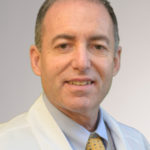
As a multi-system disease, sarcoidosis presents challenges for rheumatologists trying to balance the need to screen multiple organs for disease involvement with the desire to avoid unnecessary tests or treatments.
Fortunately, clinicians can learn about the latest sarcoidosis evidence and recommendations during Sarcoidosis — Update on Pathogenesis, Patient Evaluation, & Treatment, which will take place from 2:30 – 4:00 pm Tuesday in Room 20 A.
Marc Judson, MD, Chief of the Division of Pulmonary and Critical Care Medicine at Albany Medical Center, NY, will present “Three Tiers of Screening for Sarcoidosis Organ Involvement.”
“Like a lot of rheumatologic diseases, sarcoidosis is a multi-system disease,” Dr. Judson said. “Patients may present with symptoms related to one specific organ, but once the diagnosis is made, the disease may be present in several other organs. It’s important to note that other organ involvement is not always important or a concern.
“Sarcoidosis is not necessarily a progressive disease, and it doesn’t necessarily cause significant quality-of-life impairment or organ dysfunction. Since the treatment often is toxic, sometimes it’s best to leave it alone, especially if the patient is asymptomatic. So it’s inappropriate to screen every single organ with a PET scan or MRI scan because if you find something, oftentimes the best thing to do is to do nothing.”
To help attendees understand what is appropriate when screening for sarcoidosis organ involvement, Dr. Judson will discuss the tiered approach.
“The first tier is really what all good doctors do, which is to take a good medical history and complete a thorough physical exam,” he said. “By doing that, you may key in on certain organs being involved just from the history and physical examination. You’re looking for symptoms or clinical signs of organ involvement.”
Following a thorough exam and history, clinicians then need to focus on a few organs where undetected disease can become a serious problem. With this in mind, Dr. Judson said, the second tier involves screening with specific blood tests to look for issues such as liver function abnormalities.
“Again, not all asymptomatic disease is relevant, but we need to know when it is clinically important,” he said.
Finally, Dr. Judson will review more complex screening recommendations to look for eye involvement, cardiac involvement, and vitamin D dysregulation.
“These are important areas because all three can cause serious problems, even if the patient has no symptoms,” he said. “About a third of the time patients with sarcoidosis have significant eye involvement, and they have absolutely no symptoms. These patients can develop permanent vision impairment without treatment.
“With vitamin D dysregulation, again the patient may have no symptoms but that can result in kidney stones or even renal failure, so we need to screen for that, which can be a complex process. And although only found in about 5 percent of sarcoidosis patients, cardiac involvement is a major cause of death, particularly sudden death, so that also requires detailed screening.”
The symposium will also include a lecture by Daniel A. Culver, DO, Director of the Interstitial Lung Disease Program in the Department of Pulmonary Medicine at the Cleveland Clinic, OH. Dr. Culver will provide an update on the immunology and pathogenesis of sarcoidosis.
Robert Baughman, MD, PhD, Professor of Internal Medicine at the University of Cincinnati Medical Center, OH, where he specializes in pulmonary diseases, lung disease, and interstitial lung disease, will review the most up-to-date treatment recommendations for sarcoidosis.
